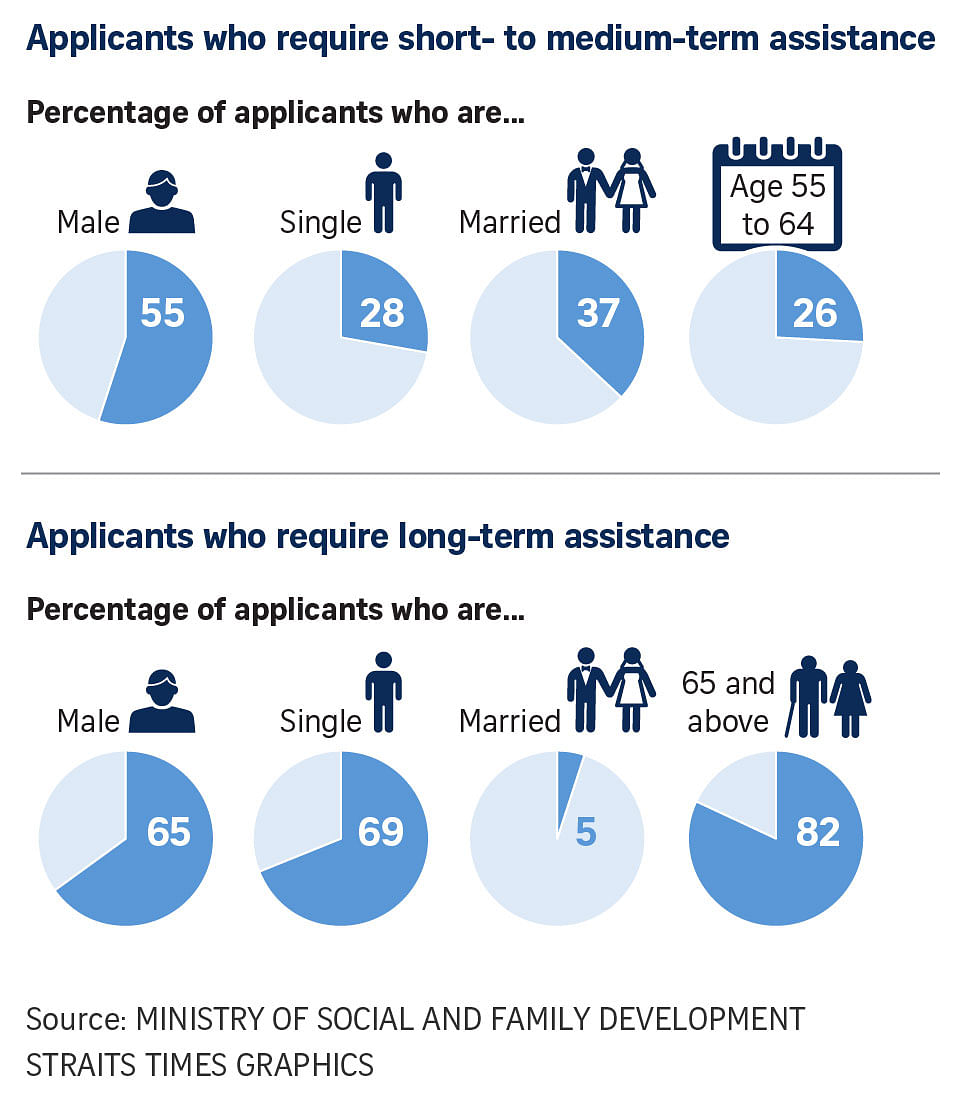ComCare helps family tide over after 29-year-old breadwinner's job loss amid Covid-19 pandemic
SINGAPORE – When a clinical specialist resigned in April last year amid the Covid-19 pandemic, his family finances suffered a huge blow.
The healthcare small and medium-sized enterprise he worked for asked him to take no-pay leave, forcing his hand, said the man who wanted to be known only as Mr S.
As his family’s sole breadwinner, Mr S, 29, has to support three schoolgoing siblings aged between 13 and 20.
His parents are divorced. His mother, who is in her 50s and was diagnosed with late-stage cancer in 2019, has to go for regular chemotherapy that costs more than $3,000 each session.
As she is a long-term visit pass holder, her medical bills are not subsidised, said Mr S.
“I was very worried, and it was a tough decision to resign,” said Mr S, who is Singaporean.
He applied for ComCare’s short-to-medium-term assistance (SMTA), after being advised by a social service agency.
His family received about $2,000 a month from July to December last year, even though he found a job as an engineer, paying close to $4,000 a month, in July.
SMTA is meant to help families meet basic needs through making up the shortfall between household income and expenditure. Those in one- and two-person households will generally get less assistance than larger households, said a spokesman for the Ministry of Social and Family Development (MSF).
Families with members who are working but require additional support to meet daily living expenses would also require less help than a family with no income.
“The bills have still been piling up, but the hospital has been merciful in not chasing for money yet,” Mr S said. “The ComCare assistance last year was really helpful in helping the family pull through, as it was really not easy not having an income.”
Mr S said the monthly ComCare payouts went towards paying his mother’s medical bills and household expenses. The family lives in a two-room rental flat.
His family was among 35,749 households getting SMTA for the financial year that began on April 1, 2020 and ended on March 31, 2021. The number is an increase from 28,807 in the financial year before.
The MSF announced the statistics for ComCare in a report on Wednesday (Oct 13).
An increasing proportion of SMTA applicants has received post-secondary education, like Mr S.
This group made up 14.7 per cent of applicants in the financial year that ended in March. Over the same time period, the figures were 13.2 per cent (March 2019) and 11.9 per cent (March 2017).
The ComCare annual report showed that the proportion of households living in bigger flats and qualifying for the SMTA scheme has climbed.
The proportion of households in three- to five-room Housing Board (HDB) flats was 44.9 per cent in the financial year that ended in March, up from 42.1 per cent in the financial year before.
The proportion of those living in one- and two-room HDB flats fell in the same time period.
Sociologist Tan Ern Ser noted that a larger proportion of lower middle or middle-income workers living in bigger flats may have lost their jobs or taken huge pay cuts due to the pandemic hitting certain industries hard.
As Dr Terence Yow, divisional director of care and integration at AMKFSC Community Services, said: “Living in a bigger flat doesn’t mean they are doing well financially. They could have a larger family or very little savings, so losing their jobs or having their income severely cut (hits them hard).”
An MSF spokesman said ComCare assistance complements other measures that the Government has introduced to support Singaporeans whose jobs and livelihoods have been affected by the pandemic.
These include the Jobs Support Scheme, Temporary Relief Fund, Self-Employed Persons Income Relief Scheme, Covid-19 Support Grant, Covid-19 Recovery Grant and Covid-19 Recovery Grant – Temporary.
Join ST’s Telegram channel here and get the latest breaking news delivered to you.
Source: Read Full Article



